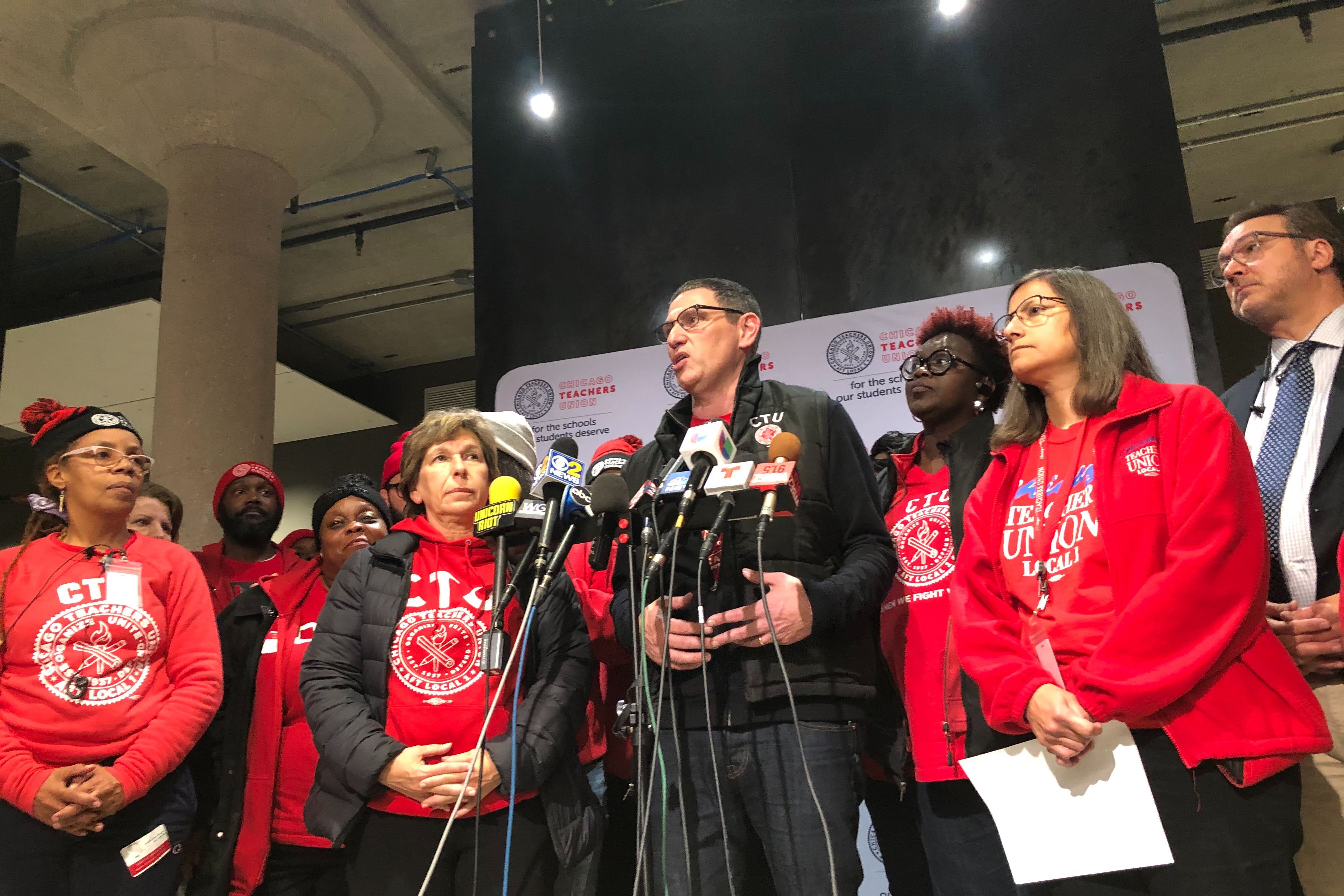With less than a month before some Chicago teachers could return to school buildings, the teachers union has said it rejects the district’s plan for “simultaneous instruction.”
The union also is calling for the city to set a 3% positivity threshold for reopening decisions. Above that rate, Chicago Public Schools would return to all-remote instruction.
The union released its list of demands Thursday, and it’s the most detailed look yet at what it would take to get union leaders to support reopening schools. The list heralds a looming clash between the district and union ahead of Jan. 4, when the first round of teachers are expected to return to buildings.
Despite months of negotiations, the two sides have failed to reach a written agreement. The union has accused the district of not bargaining in good faith, while the district has said the union hasn’t brought forward concrete proposals. The intensity of the conflict is reminiscent of last fall, when teachers walked out on an 11-day strike after weeks of stalled negotiations.
In New York City, Mayor Bill de Blasio recently abandoned his threshold — 3% positivity over a seven-day range — after a brief school shut down and concerns from parents that the rate was arbitrary.
Some of the Chicago union’s demands — like a rejection of “simultaneous instruction,” during which teachers instruct in-person students and remote students at the same time — are likely to be more contentious than others. The approach has fast become a fixture of the return to school buildings nationally, but educators say it can be difficult, and that teachers need significant support to do it successfully.
In a statement on the union’s demands, a Chicago Public Schools spokesperson said “CTU is seeking to reduce instructional time for students and tie reopening to arbitrary standards that are not based on actual public health recommendations.”
Even as the district and union continue to meet regularly, district leaders said they don’t expect to have a written agreement with the union ahead of January’s reopening, and they plan to press ahead without it.
Among the union’s other demands:
- A 3% test positivity threshold to reopen schools. District leaders have not set a positivity threshold for reopening, but said they will put school reopening plans on hold until the case-doubling metric hits 18 days.
- A shutdown of school sites if a local community is above 3%. Currently, some Chicago neighborhoods, such as Belmont Cragin, clock in at a weekly positivity rate of 21%.
- Testing of all staff on a rotating basis, with about 25% of educators tested weekly, and targeting high positivity areas. Under pressure from the union, Chicago Public Schools said in November it would offer random COVID-19 testing, not just tests to symptomatic individuals as it had previously planned. The city, district leaders said, will provide the district with 30,000 rapid tests to aid in that effort — but it would need a regular supply to meet the union’s demands.
- Creation of a CTU-CPS Joint Committee on COVID-19 that includes independent experts.
- School-level safety committees that include union delegates.
The union also listed specific demands around improving remote learning. It wants the school district to reduce screen time by one hour a day. Students would engage in individual activities during that time, and teachers would use the added hour for preparation and professional development.
The list of demands also includes some efforts toward rent support for families and additional counselors in schools in lieu of police officers, but it does not offer additional details.
Read the full list of demands here.







